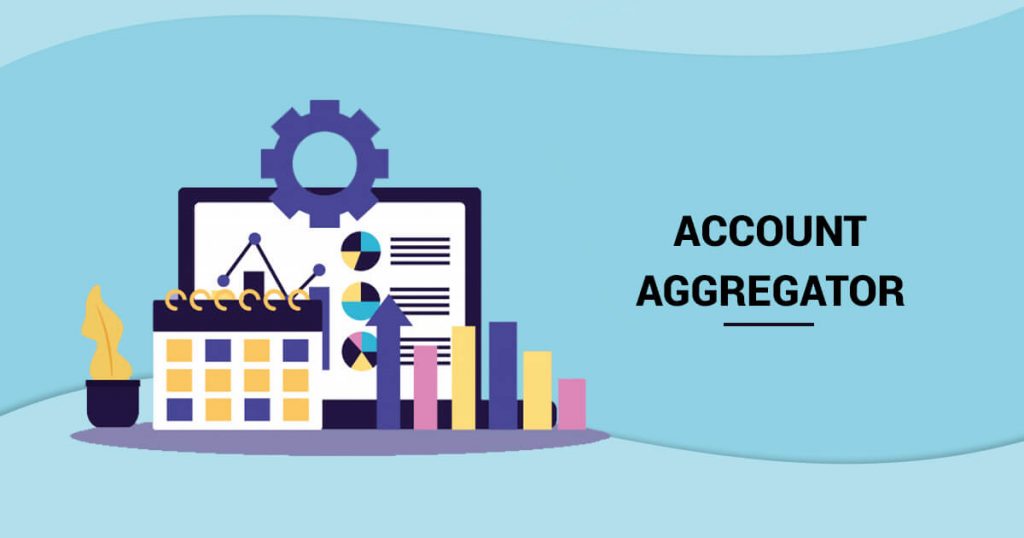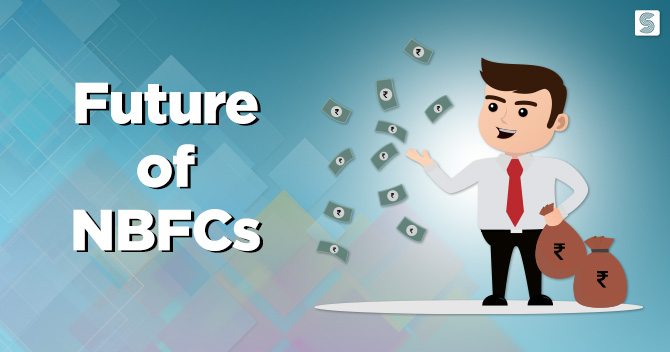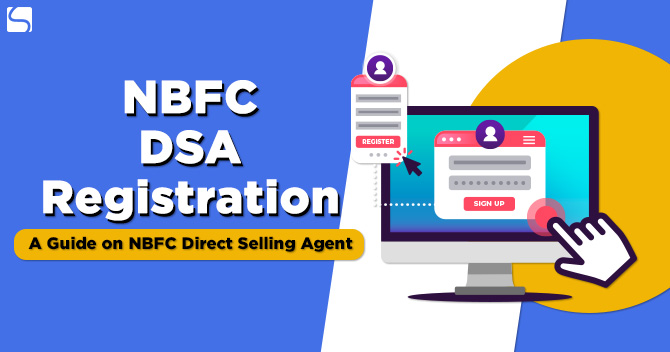NBFC Account Aggregator: A Framework on Financial Information Sharing

Dashmeet Kaur | Updated: Oct 24, 2019 | Category: NBFC, RBI Advisory
On 3rd March 2016, the Reserve Bank of India had sought shareholders’ comments on the “Draft Regulatory Framework for Account Aggregator Companies to promote Consolidated Viewing of Financial Asset Holding.” It foresees the formation of a new class of NBFC (Non-Banking Financial Companies) known as NBFC Account Aggregator. In the advancement of this framework, RBI issued the” Master Directions Non-Banking Financial Company – Account Aggregator (Reserve Bank) Directions (AA Master Direction)” on 2nd September 2016.
Though the framework for Account Aggregators got conceptualized in March 2016, but the public sources represent that until the date, only five applicants have received in-principle approval by RBI to operate as Account Aggregators.
Table of Contents
What is Account Aggregator?
Account Aggregator (AA) is a financial entity that aims to consolidate account information by functioning as an aggregator for NBFC customers. It compiles, organizes, and retrieves data of numerous economic engagements by a customer among different accounts like bank accounts, investment accounts, credit card accounts, and other business accounts in a single spot. The activities undertaken by the NBFC Aggregators or consent brokers, such as delivering and sharing financial information of a business or individual with a third party, happens with the consent of the customer.
What is the significance of the NBFC Account Aggregator?
The NBFC-AA plays an essential role in deterring the financial engagement of a customer with the different products of NBFC. Let’s peek into the other aspects in which the Account Aggregators excels:
- The primary function of an NBFC Aggregator is to render account information in a consolidated, organized, and retrievable manner help by the customers.
- The NBFC-AA carries out IT-oriented activities to provide digital data to the customers.
- NBFC-AA differs from other NBFC; thereby, its central function is account aggregation. It means that the aggregators do not enter into financial assets transactions with their customers, unlike other NBFCs.
- An Account Aggregator has the permit to deploy investible surplus in instruments & not for trading. The Board-approved policy of the account aggregator fixes the prices of the services.
- The policies and guidelines embraced by NBFC Aggregators are always transparent in the public domain.
Compliance of Account Aggregators
Here is the list of established guidelines that NBFC Account Aggregators have to follow:
- The services of an NBFC Account Aggregator (NBFC-AA) must get secured with an appropriate agreement between the aggregator, customer, and financial service provider.
- Account Aggregators must compel with the terms and conditions of the NBFC license like protection of customer, data security, corporate governance, grievance redressal, audit control, and risk management framework.
- Financial Stability and Development Council (FSDC) must associate with the idea of NBFC Account Aggregators (NBFC-AA).
How does the system of NBFC-AA works?
NBFC-AA share financial data from a Financial Information Provider to the Financial Information User. For your better understanding here is the meaning of both the terms:
Financial Information User (FIU): It refers to an entity regulated by financial sector regulators like SEBI, RBI, IRDA, PFRDA.
Account aggregators enable customers to transfer financial information in regards to their various financial accounts to any entity which requires access to FIU. AA Master Direction states that there are 19 categories of ‘financial information,’ which spans varied types of information, including insurance policies, mutual fund units, insurance policies, bank deposits, and balances under the National Pension System.
For sharing financial information, the FIU must initiate a request for consent, which must include details of the categories of information that are required by way of any platform or mobile application run by Account Aggregators.
The customer must receive a request from an account aggregator to share the information once the customer’s consent is duly acquired. Also, Customers may export data in a structured format.
Key Responsibilities of NBFC-AA
One of the prime responsibilities of any NBFC Account Aggregator is to capture information of NBFC customers with their explicit consent and to disseminate it. Some of the other duties and responsibilities of the NBFC-AAs as laid down by the RBI are:
- To obtaining customer’s consent
- In-principle approval to perform such activities
- Conducting methods of proper customer identification
- For the protection of customer’s rights laid down Citizen’s Charter
- Safeguarding financial information of the customers
- To ensure that no information will get retrieved or transferred without obtaining proper consent of the customer
The NBFC aggregator is bound to execute their duties actively to retain their licenses. Now you must be wondering about the process of attaining the Certificate of Registration for operating the activities of AA.
Process of Account Aggregator Registration
RBI regulates every part of NBFC-AA, thus, the Reserve bank of India also carries its registration. In the registration process of such an entity shall not have any customer interface or hold public funds. If you are interested in getting a certificate of NBFC-AA (NBFC Account Aggregator) registration, then you need to undertake the following steps:
- The first step involves company registration according to the Companies Act, 2013
- Secondly, the company must ensure to have appropriate resources to provide such type of services.
- For undertaking the business of Account Aggregator, the company needs to arrange an adequate capital structure.
- Give an assurance that the general character of your management is not prejudicial to the public interest.
- It is mandatory to obtain the Certificate of Registration (CoR) from RBI to carry the activities of Account Aggregators.
- To obtain CoR, an applicant requires to send an application to the RBI.
- The minimum requirement of Rs. 2 crore is compulsory.
- The applicant needs to equip with an information technology-driven system to carry out services of account aggregation[1].
- The promoters of the NBFC-AA must be fit and proper as per RBI.
- Lastly, the leverage ratio should not exceed seven times.
Data Security Norms for Account Aggregators
It is indispensable for NBFC-AA to embrace an entirely IT infrastructure to carry the financial information of various customers. They are solely responsible for the safe storage & transfer of data from FIPs to FIUs. Moreover, they have to give a guarantee that the customer credentials cannot be retrieved or stored in their system because they follow strict security norms.
Also, Read: Semi-Closed Wallet License















